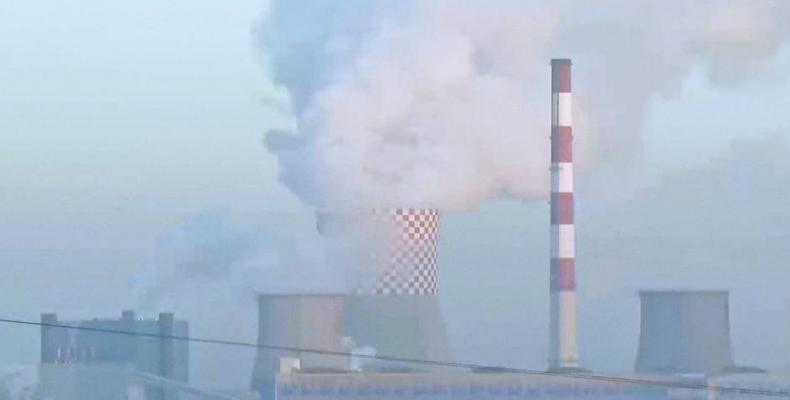United Nations, December 6 (RHC)-- Two reports published during the 25th United Nations Conference on Climate Change, COP25, held in Madrid, highlighted the way in which the average temperature of the Earth increases with catastrophic results for life on the planet, including our own health, and how, despite this, human beings still do not use effective remedies to stop this phenomenon or mitigate its effects.
Seven million people die each year from air pollution with the same gases that cause climate change. In addition, in 2018, the number of people over 65 exposed to heat waves increased by 220 million compared to the average for the period between 1986 and 2005. These are just two aspects of how this phenomenon affects health. However, only one in five countries has health strategies for climate change.
The first of the documents, the declaration on the state of the global climate was signed by the scientists of the World Meteorological Organization, contains many of the findings already revealed in the report from the "United in Science."
The statement confirms that the year 2019 will put an end to a decade marked by exceptional heat registers, by the decline of ice and by unprecedented worldwide sea level changes exacerbated by greenhouse gas emissions as a result of human activity.
Almost certainly, the average temperatures of the five-year period (2015-2019) and the decade (2010-2019) will be the highest recorded and everything indicates that 2019 will be the second or third warmest year since this data was available.
Carbon dioxide concentrations in the atmosphere reached a new all-time high of 407.8 parts per million in 2018, and in 2019 they kept increasing. That gas remains in the atmosphere for centuries, and in the oceans for even longer periods, so that it perpetuates climate change.
It has also been found that since 1993, when satellite measurements began, sea level rise has accelerated due to the melting of the ice sheets of Greenland and Antarctica.
The ocean acts as a shock absorber by absorbing heat and carbon dioxide, but this has serious consequences. The heat accumulated in ocean waters has reached unprecedented levels and widespread marine heat waves have occurred. The acidity of seawater has increased 26% since the beginning of the industrial era. As a result, vital marine ecosystems are degrading, the world organization warns.
The minimum value of daily sea ice extension in the Arctic in September 2019 was the second lowest since satellite records were available, and in the month of October, minimum extension records were also set. On the other hand, in Antarctica, ice extensions registered unprecedented minimum values in some months of 2019.


